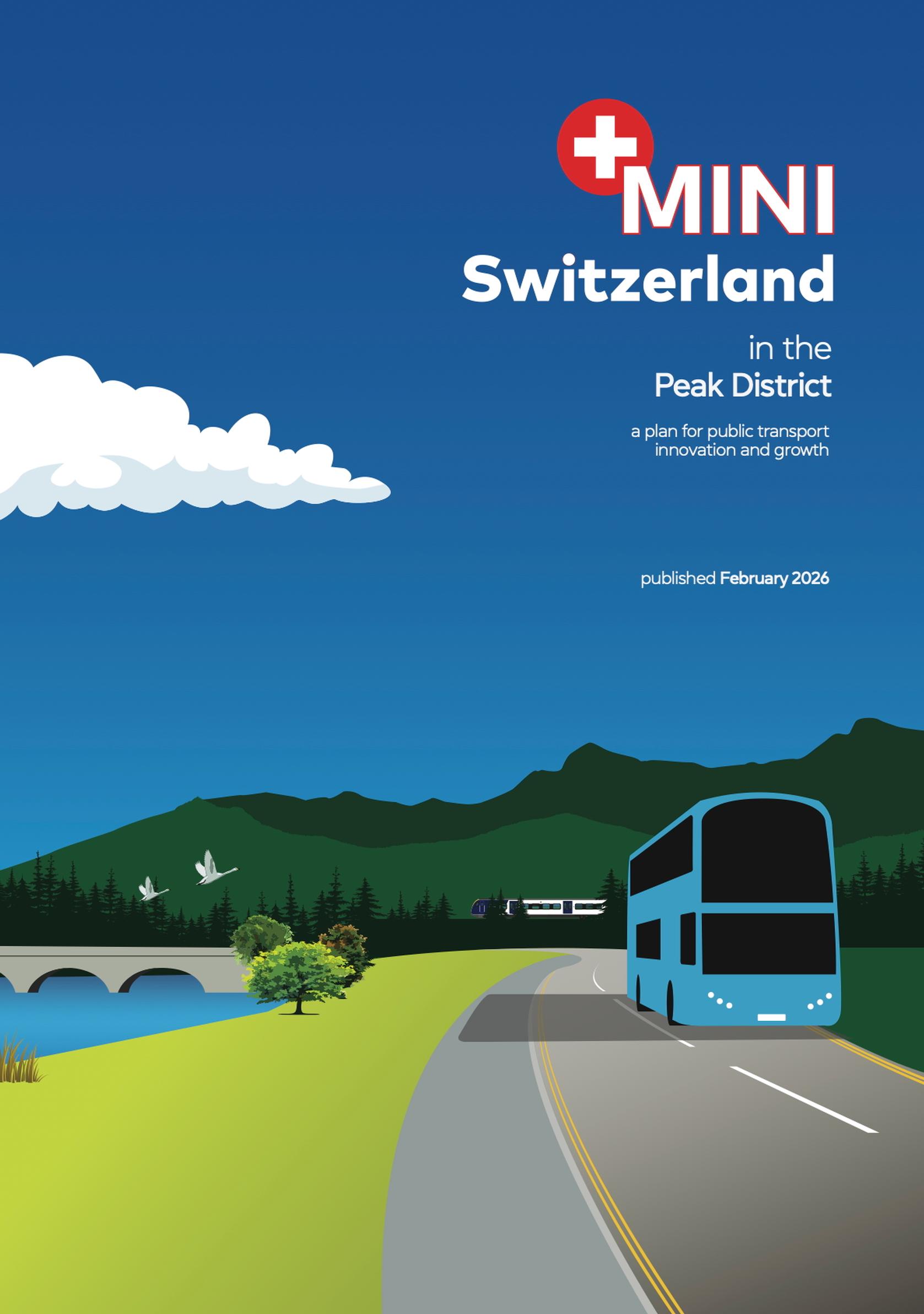
The latest monitoring of the Welsh 20mph default speed limit has revealed a further worsening of compliance. The results also include the first snapshot of traffic speeds on roads where 30mph limits have been restored. Transport for Wales started monitoring speeds at 43 sites before the default limit changed in September 2023. The number of 20mph monitoring sites has now reduced to 38, because five were among the 52 sections of road where Wrexham council reinstated 30mph limits last year. In summer 2025, 51.5% of vehicles on the monitored 20mph roads were found to be travelling at or below 24mph. In winter 2023/24 the figure was 57.9%, falling to 52.3% in summer 2024 and 53.8% in winter 2024/25. Only 15.2% of vehicles were travelling at or below 19mph in the summer 2025 monitoring. TfW... continue
The Treasury has published the promised new version of its Green Book guidance on scheme appraisal, expected to trigger comparable revisions to Department for Transport practice. It responds to the changes referenced by Chancellor Rachel Reeves in her Public Spending review announcement last June,... continue
Train operator Southeastern has named the two-year-old £44m Thanet Parkway as its fastest growing station. Passenger numbers seem to be close to the core scenario forecast, despite the station’s delayed opening. “Southeastern is seeing strong growth across its network, with... continue
Bedford Borough Council expects to incur a final cost of about £32m on its abandoned Wixams station project, now taken over by Network Rail. Construction of a two-platform station began in September 2024 but was halted because the announcement of the go-ahead for Universal’s new theme... continue
East West Rail CEO David Hughes has informed Network Rail’s board that the project challenges include “the uncertainty about the increase in passenger usage that would be created by the proposed Universal theme park”. The £50bn Universal Studios Bedford theme park, due... continue
Cornwall Airport Newquay’s financial deficit is likely to increase after its owner, Cornwall Council, failed to find an affordable new operator for subsidised flights to and from London. Council officers informed cabinet members last week that two recent procurements had failed to attract a... continue
The possibility that the region’s proposed new mass transit system will be bus-based is acknowledged in a public consultation just opened on the West Yorkshire Mass Transit Spatial Development Framework (SDF). The SDF is a joint Development Plan Document under Regulation 18 by the West... continue
Welsh First Minister Eluned Morgan has hinted that the Welsh Government might regard the UK Government’s chosen course of action on pavement parking as not going far enough. When Lee Waters held the Welsh Government’s transport portfolio, he sought an amendment to regulations from the... continue
Edinburgh Councillors have laid plans to use revenue from the City’s new Visitor Levy across a range of projects and workstreams including enhanced streetscapes and public realm. The spending will be under a £41.1m capital investment package, over the next three years, through the City... continue
Draft new Design and Placemaking Planning Practice Guidance (PPG) has been published by the Ministry of Housing, Communities and Local Government (MHCLG). It consolidates four existing guidance documents—the National Design Guide, the Design Process and Tools PPG, and the National Model... continue
Public transport connectivity , carbon emissions, bus patronage and active travel levels, are amongst transport indicators chosen by The Ministry of Housing, Communities and Local Government (MHCLG) for the first edition of the Local Outcomes Framework (LOF). Released alongside the Final Local... continue
Jacobs and PA Consulting have secured a four-year £16m contract extension from the Department for Transport leading a consortium to deliver its role in the National Security Science and Research (NSSR) programme. The initiative focuses on applying research and technology to improve the... continue
Transport payment technology business Masabi has acquired bus ticketing systems provider Passenger. Masabi, which pioneered early digitally scanned fare payments on rail services, now operates a payment -as-a-service model. It says the move will strengthen its “end-to-end mobility offering by... continue

When installing School Streets be clear about your aim to... continue
The Government is to contribute £110m in funding towards the £200m North Hykeham Relief Road project in Lincolnshire. The remaining £90m costs will be covered by Lincolnshire County Council, which estimates the project will boost the local economy by £800m. The new dual... continue
Live Facial Recognition (LFR) technology is being trialled by the British Transport Police (BTP) at London Bridge railway station. BTP said it would announce dates and locations of other LFR trials before they began. Chief Superintendent Chris?Casey,?BTP’s?Senior Officer overseeing... continue
Trials of a self-driving shuttle bus have been held in the market town of Mildenhall, Suffolk, with residents given the chance to ride in the ADASTRA prototype. The shuttle can carry up to 14 passengers at speeds of up to 40mph. However, during the trial it has been limited to eight seated... continue
Wiltshire Council has reversed its decision to cut £150,000 from its community transport budget after concerns were raised by local charities. The proposal would have affected Wiltshire's Link Schemes – small charities with about 2,000 volunteers in total – who help... continue

Plans to create the blueprint for a Swiss-style integrated public... continue
Councils will find it hard to successfully implement Low Traffic Neighbourhoods (LTNs) without regional leadership and adequate funding streams, concludes a report from a team of academics. “We found that local authorities needed access to extra resources boosting the limited capital budgets... continue
TransportXtra is part of Landor LINKS
© 2026 TransportXtra | Landor LINKS Ltd | All Rights Reserved
Subscriptions, Magazines & Online Access Enquires
[Frequently Asked Questions]
Email: subs.ltt@landor.co.uk | Tel: +44 (0) 20 7091 7959
Shop & Accounts Enquires
Email: accounts@landor.co.uk | Tel: +44 (0) 20 7091 7855
Advertising Sales & Recruitment Enquires
Email: daniel@landor.co.uk | Tel: +44 (0) 20 7091 7861
Events & Conference Enquires
Email: conferences@landor.co.uk | Tel: +44 (0) 20 7091 7865
Press Releases & Editorial Enquires
Email: info@transportxtra.com | Tel: +44 (0) 20 7091 7875
Privacy Policy | Terms and Conditions | Advertise
Web design london by Brainiac Media 2020